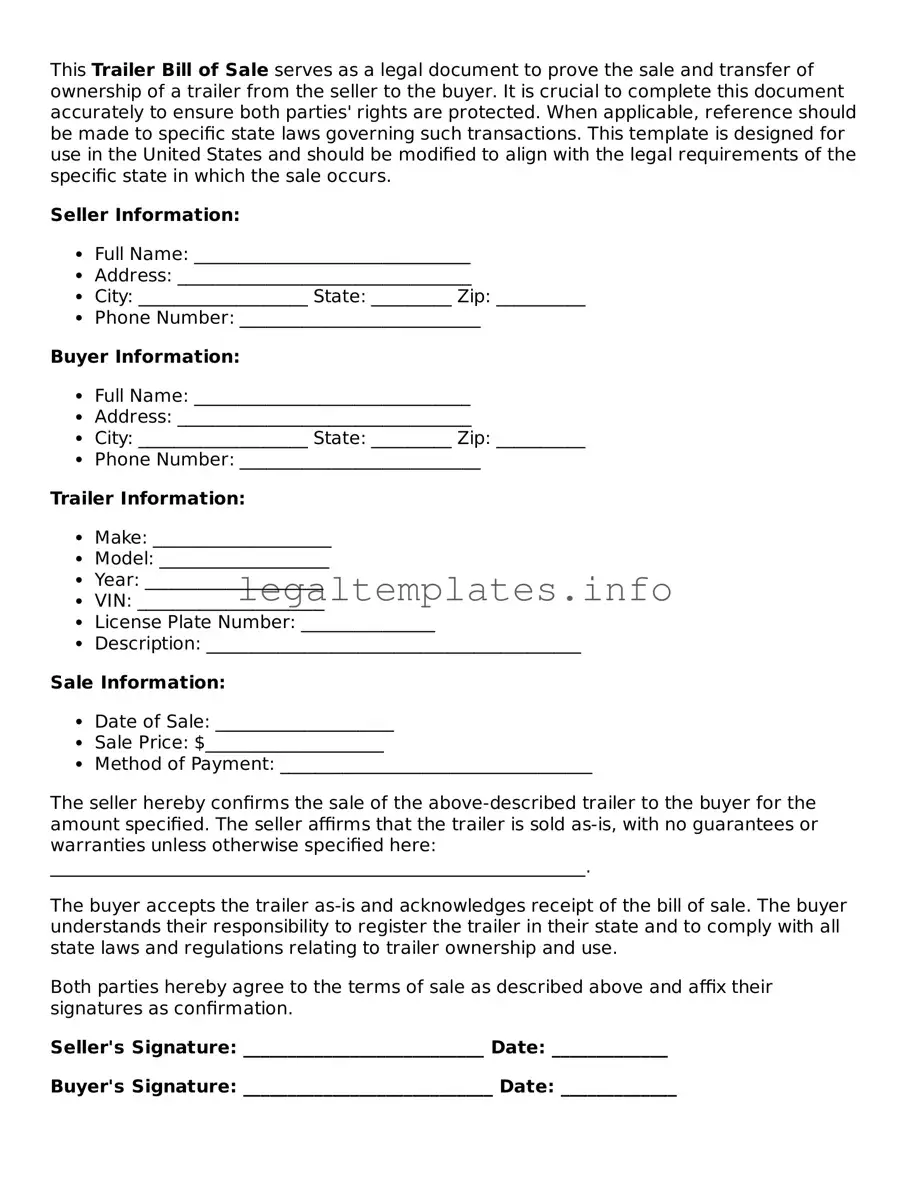The Trailer Bill of Sale form shares similarities with the Vehicle Bill of Sale document. Both serve as proof of purchase and convey ownership from the seller to the buyer, but for different types of property. They typically include information such as the make, model, year, and identification number of the item sold, as well as details about the buyer and seller. This formal documentation is crucial for registration and tax purposes.
Similar to a Boat Bill of Sale, the Trailer Bill of Sale outlines the transaction specifics for a boat trailer. It records the sale's details, including the purchase price and date of sale, ensuring there is legal proof of the transaction. Both documents are vital for registration and insurance purposes, helping to establish the new ownership of the boat or trailer.
A Motorcycle Bill of Sale compares closely with the Trailer Bill of Sale as well, documenting the sale and transfer of ownership of a motorcycle. Both forms capture essential details such as the VIN (Vehicle Identification Number), make, model, year, and the sale price. These documents are important for the buyer to register the vehicle or trailer in their name and for the seller to have a record of the sale.
Like an Equipment Bill of Sale, the Trailer Bill of Sale form is used for transactions involving specific items, in this case, trailers versus general equipment. Both forms include the sale date, purchase price, and information about the buyer and seller. They are essential for the legal transfer of ownership and may be required for tax and registration purposes.
The Trailer Bill of Sale has parallels with the General Bill of Sale form. The General Bill of Sale is a broader document that can be used for selling personal property from one individual to another. Although more comprehensive, it includes similar information such as the description of the item sold, purchase price, and party details. Both documents serve as a receipt for the transaction and proof of ownership transfer.
The Livestock Bill of Sale form is another document similar to the Trailer Bill of Sale, but for the sale of animals such as horses, cows, and other livestock. Both documents include specifics about the item being sold, the sale terms, and the parties involved. They are necessary for proving ownership and may be required by state or local authorities for registration or identification purposes.
A Firearms Bill of Sale closely resembles the Trailer Bill of Sale in that it documents the sale of a specific item, in this case, a firearm instead of a trailer. The document captures significant details such as the make, model, serial number, and the sale price, alongside buyer and seller information. This documentation is crucial for legal ownership transfer, and may be required for registration or licensing purposes.
Lastly, the Real Estate Bill of Sale stands in comparison to the Trailer Bill of Sale, although it pertains to the sale of real property rather than movable property. Like a Trailer Bill of Sale, it documents the transaction's details, providing proof of the property's transfer from the seller to the buyer. Both documents play a critical role in the respective registration processes and in legal record keeping.

